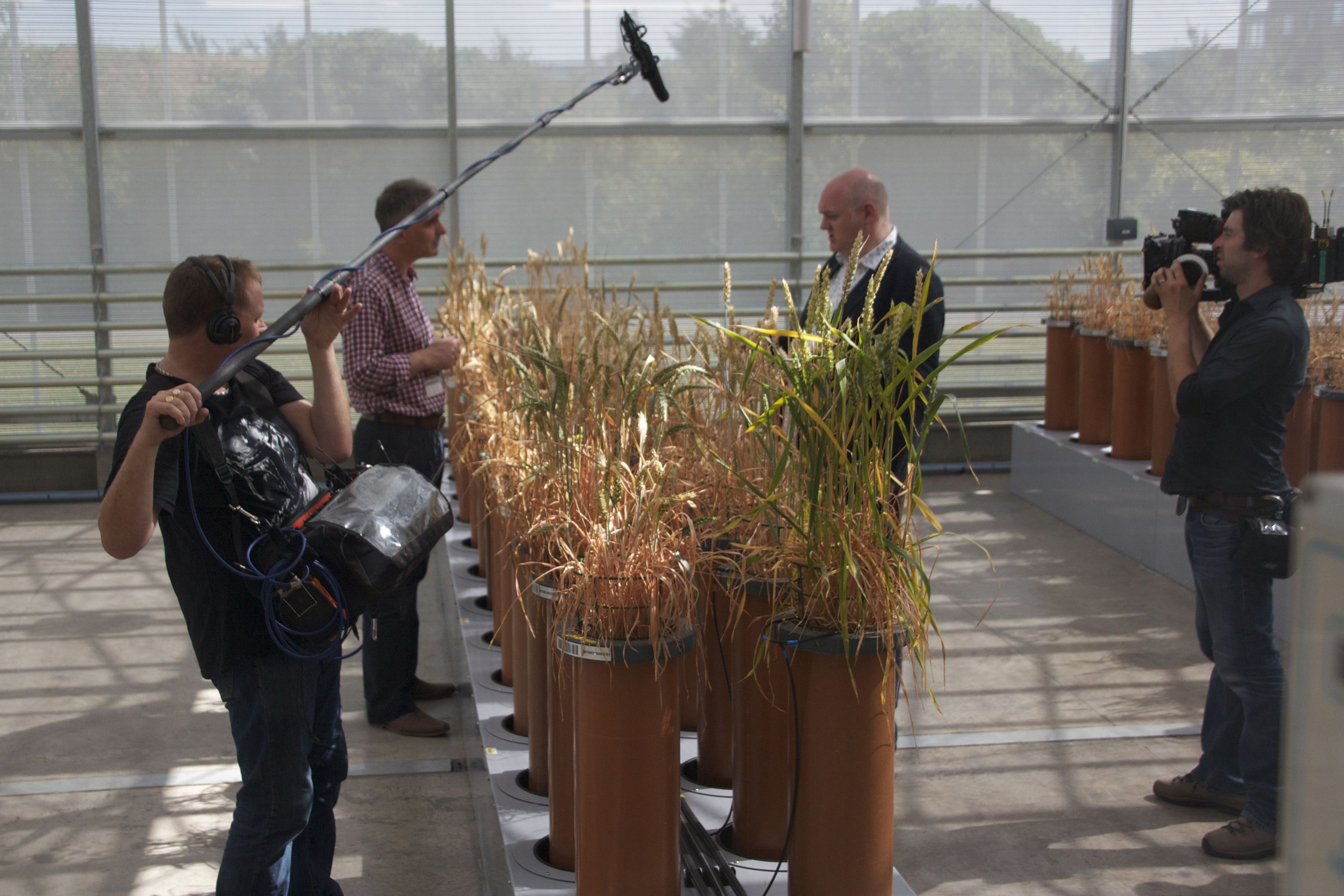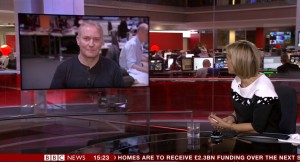
December 4, 2015, by Lindsay Brooke
Hold the front page! New awards to recognise media engagement.
Entries are now open for the 2016 Knowledge Exchange and Impact Awards. This year two new ‘media awards’ are included in the line up. The ‘media awards’ have been established to recognise the contribution made by academics who successfully use the media – print, broadcast, online, social – to inform and educate and even entertain the public with stories about their research or contribute to topical debate or discussion.
The Media Awards are open to all staff – individuals or groups – from our campuses in the UK, China and Malaysia.
There are two awards in this category. One is for News and Current Affairs and the other is for Digital Media. Five entrants will be shortlisted in each category and the awards will be presented at a special dinner at the East Midlands Conference Centre on Thursday 5 May 2016.
Tom Whipple, Science Editor at The Times, who has been spotted testing out some of Nottingham’s work with Virtual Reality in the recent past, has kindly agreed to present the News and Current Affairs Award.
Entries are open now and close on Friday 19 February 2015. Entry forms can be found here.
The Vice-Chancellor, Professor Sir David Greenaway, said: “Knowledge exchange is now firmly established as a key feature of the research process. With the increasing emphasis on delivering impact, I believe that knowledge exchange has never been more important to the University’s future sustainability, as global competition heats up.”
The panel of judges for the media awards will be looking for entries which demonstrate how the academic and/or team has met each aspect of the criteria.
Entries for the News and Current Affairs Award will be short-listed based on the following criteria:
- Coverage – the extent of news coverage across the media at local, national and international level.
- Outcome of media coverage – the impact media coverage has had on the real world and your research.
- Proactive media work – the extent to which you and/or team have actively promoted your work in the media.
- Reactive media work – extent to which you have and/or team responded to media enquiries.
- Benefit to the Faculty, School or Division – how has the project benefited the University strategically, financially and/or reputationally?
For more information about this award, please contact Lindsay Brooke.
The entries for the Digital Media Award will be short-listed based on the following criteria:
- Clear aims and objectives – a clearly defined plan of what the project aimed to achieve and how this was measured.
- Content creation and creativity – who created the content and how? Was this a collaboration between teams? What types of media did you use (video, imagery, blogs etc)? Was the content produced in-house or did you have external help (please include details of any budget spent on the project).
- Content promotion – how you and/or team promoted the content to your audience, including any work with internal/external stakeholders.
- Engagement – the extent to which the target audience engaged with your digital content. This must include analytics to demonstrate the reach of your project as well as engagement metrics. (Entrants can contact anne.smart@nottingham.ac.uk for guidance on key metrics for different types of digital media).
- Benefit to the Faculty, School or Division – how has the project benefited the University strategically, financially and/or reputationally?
For more information about this award, please contact Anne Smart.
Tim Utton, Deputy Director of Communications, said: “We want to celebrate the contribution made by academics to increasing media coverage for the University. We appreciate media work can be time consuming and challenging but the benefits can make a huge impact on informing the public as well as potential future collaborations and funding. If you have been involved with the traditional and/or social media do please consider entering for one of the awards.”
Featured image shows Professor Malcolm Bennett talking to Dara O Briain for the new BBC TV series Tomorrow’s Food.
No comments yet, fill out a comment to be the first



Leave a Reply